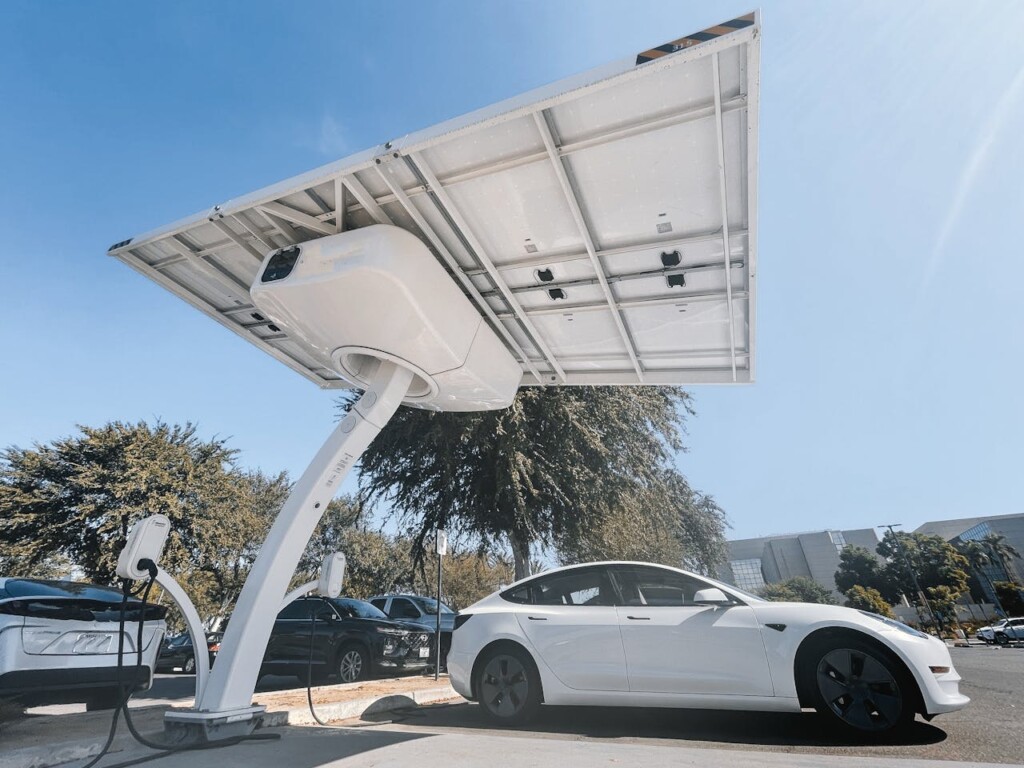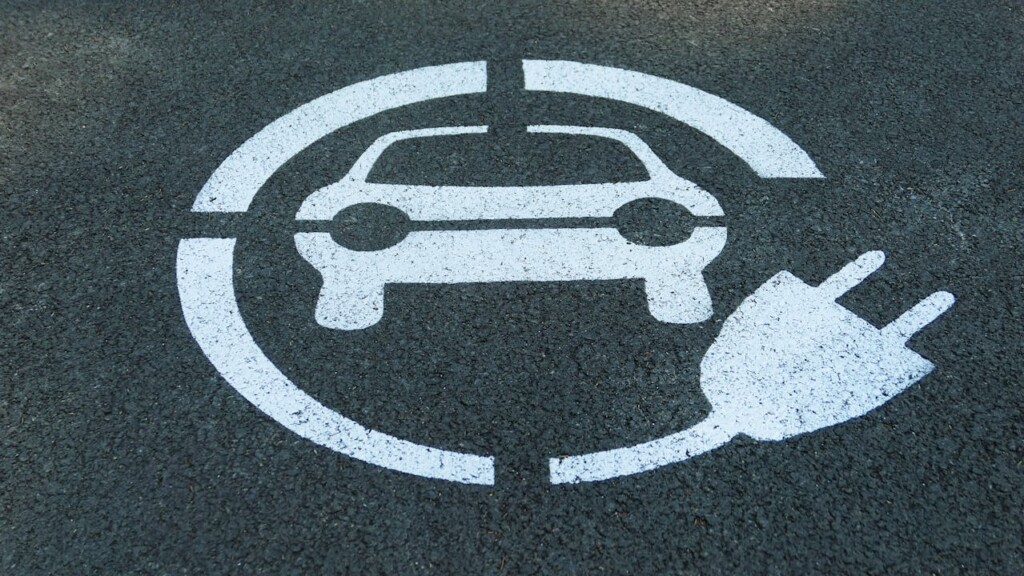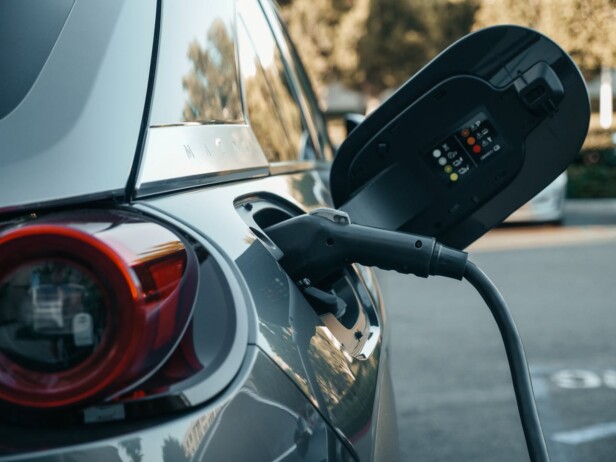Electric vehicle adoption in Houston commercial properties reached a tipping point in 2024, with over 60% of new construction projects incorporating EV charging infrastructure. An EV charging station installation contractor in Houston handles the complete process of planning, installing, and maintaining electric vehicle chargers across commercial properties, multifamily developments, and public sites.
We at EB3 Construction specialize in Level 2 EV chargers for business and multifamily applications, while also supporting DC fast charging installations where rapid turnover demands it. Licensed electricians and thorough site planning form the foundation of every code-compliant system we deliver to Houston properties.
Which EV Charging Levels And Equipment Fit Houston Properties?

We evaluate three distinct charging options for Houston commercial properties. Level 1 provides basic charging through standard 120V outlets, making it the slowest but most accessible option. Level 2 offers faster charging through 240V power systems and represents the most practical choice for businesses and multifamily developments. DC fast charging delivers rapid power for high-turnover locations and highway corridor sites.
Level 1 Charging Options
Level 1 systems connect through common residential 120V AC outlets found in any standard building. These chargers deliver 1.3 to 2.4 kW of AC current, providing approximately 3 to 5 miles of range per hour of charging. A full battery charge typically requires 40 to 50 hours for most electric vehicles.
We rarely recommend Level 1 for commercial applications due to extended charging times. Property owners may find this option suitable only for overnight parking scenarios or emergency backup charging situations.
Level 2 Systems For Business Applications
Level 2 equipment operates on 240V power in residential settings or 208V for commercial installations. These systems deliver 3 kW to 19 kW of AC current, providing 10 to 30 miles of range per hour of charging. Most electric vehicles achieve full battery capacity within 4 to 10 hours using Level 2 charging.
We install Level 2 chargers with integrated J1772 connectors for broad vehicle compatibility. The J1772 standard works with most electric vehicles manufactured for the North American market. Property owners benefit from this universal compatibility when serving diverse tenant and customer bases.
Level 2 installations require professional electrical work and permit approval in Houston. We coordinate with local authorities to ensure code compliance and proper power distribution throughout the charging installation process.
DC Fast Charging For High-Volume Sites
DC fast charging systems bypass vehicle onboard chargers to deliver 50 to 350 kW of direct current power. These chargers can restore 80 percent battery capacity in 20 minutes to one hour depending on vehicle specifications. Most plug-in hybrid vehicles cannot utilize fast charging capabilities.
We typically recommend DC fast charging for highway corridor properties, retail centers with high customer turnover, and fleet operations requiring rapid vehicle rotation. The significant upfront investment and electrical infrastructure requirements make this option less suitable for standard multifamily or workplace applications.
Equipment Specifications For Houston Climate
Houston’s weather conditions require chargers with appropriate environmental ratings. We specify IP65 protection for dust ingress and water resistance, ensuring reliable operation during heavy rainfall and humidity. IK08 impact resistance protects against mechanical damage in high-traffic areas.
Connectivity options include hardwired LAN connections for maximum reliability, Wi-Fi for flexible installation locations, and 4G cellular backup for remote monitoring capabilities. We recommend hardwired connections for critical applications and cellular backup for comprehensive coverage.
Safety protections include ground fault circuit interrupters, surge protection devices, and overcurrent protection systems. These features prevent electrical hazards and equipment damage from power fluctuations common in Texas electrical systems.
Cloud Management And OCPP Integration
We install chargers compatible with Open Charge Point Protocol for standardized cloud management. OCPP enables remote monitoring, usage tracking, and payment processing through centralized software platforms. Property owners can adjust pricing, monitor energy consumption, and generate utilization reports from web-based dashboards.
Payment integration supports credit card processing, mobile apps, and RFID access cards. We configure systems based on property owner business models, whether offering free charging as an amenity or implementing revenue-generating fee structures.
Remote diagnostics capabilities allow us to identify maintenance needs before equipment failures occur. This proactive approach minimizes downtime and ensures consistent charging availability for tenants and customers.
What Does A Houston EV Charging Contractor Handle?
A professional EV charging contractor manages every aspect of commercial charging station implementation, from initial site assessment through ongoing support. We handle the technical complexity while ensuring each installation meets Houston’s local electrical codes and safety standards.
Code-Compliant Installation Services
Licensed electricians are required for all Level 2 and DC fast charging installations in Houston. The electrical work involves dedicated 240-volt circuits, proper grounding systems, and GFCI protection to prevent electrical hazards. We ensure each installation meets National Electrical Code requirements and local Houston regulations.
Our installation teams handle permit applications and coordinate inspections with local authorities. The process includes verifying electrical panel capacity, installing appropriate breakers, and running dedicated wiring to support the charging equipment’s power demands. Each installation includes proper cable routing and protection to prevent damage from environmental factors.
Site Planning And Power Assessment
We conduct thorough site evaluations to determine optimal charger placement and electrical requirements. The assessment includes measuring distances from electrical panels, evaluating existing power capacity, and identifying any necessary electrical upgrades. Custom installation plans account for parking layouts, accessibility requirements, and future expansion needs.
Power assessment involves calculating load requirements for multiple charging stations and ensuring the building’s electrical system can handle peak demand. We coordinate with utility companies when service upgrades are necessary and plan installations to minimize disruption to daily operations.
Networking And User Management Setup
Modern charging stations require network connectivity for remote monitoring, user authentication, and payment processing. We configure LAN, Wi-Fi, or cellular connections based on site requirements and establish secure communication protocols. The setup includes integrating pricing structures, access controls, and user management systems.
Payment processing configuration allows property owners to monetize their charging infrastructure through various pricing models. We establish user roles, set charging session limits, and configure notification systems for both operators and users. The networking setup enables real-time monitoring of station status and usage analytics.
Training And Ongoing Support
Our technicians provide comprehensive training on charging station operation, dashboard navigation, and troubleshooting common issues. Property managers learn to monitor usage patterns, adjust pricing, and generate reports for administrative purposes. The training covers emergency procedures and basic maintenance tasks.
We maintain expertise across major charging platforms including ChargePoint, Xeal, and ABB hardware ecosystems. Our maintenance services include routine inspections, software updates, and rapid response for equipment failures. Emergency support ensures minimal downtime when charging stations experience technical issues or require immediate repairs.
What Does A Typical Houston Installation Process Include?

Our Houston EV charging installation process follows a structured approach that keeps projects on schedule while ensuring code compliance. We break the process into six clear phases that property owners can track from initial assessment through ongoing maintenance.
Pre-Install Setup Phase
We begin every Houston project with comprehensive site documentation. Our team gathers detailed site photos showing electrical panels, proposed charging locations, and parking configurations. We collect utility details including current service capacity, panel specifications, and any upgrade requirements from CenterPoint Energy or your local utility provider.
During this phase, we also discuss project goals with property owners. Whether the focus is employee convenience, tenant attraction, or revenue generation, understanding these objectives helps us recommend appropriate equipment and configurations for your specific Houston property.
On-Site Installation Execution
Installation work follows Houston Construction Code requirements and National Electrical Code standards. Our licensed electricians install all electrical components, run conduit and wiring, and mount charging equipment according to manufacturer specifications. We verify power connections, test all safety systems, and confirm proper grounding.
Connectivity testing ensures stations can communicate with network platforms when applicable. We also verify that all safety protections including ground fault circuit interrupters and surge protection operate correctly before energizing the system.
Pre-Boarding Information Sharing
Before stations go live, we provide property owners with operational FAQs covering common user questions and troubleshooting procedures. We outline available business model options including free charging, pay-per-session pricing, subscription models, and time-based rates.
Access control options are explained during this phase. Property owners learn about membership requirements, public access settings, and how to manage different user groups if needed for employee versus visitor charging.
System Onboarding And Configuration
We configure all network accounts, user roles, and administrative access according to your operational preferences. Station features including pricing structures, access controls, and usage limits are programmed during this phase. Dashboard training covers how to monitor station performance, review charging sessions, and access utilization reports.
Payment processing setup includes credit card acceptance, mobile app integration, and any required RFID access cards. We test all user interfaces and payment methods before declaring stations ready for operation.
Post-Onboarding Support Materials
Property owners receive comprehensive guides covering daily management tasks, basic troubleshooting, and reporting procedures. These materials include contact information for technical support and maintenance requests. We also provide templates for user communications and signage recommendations for optimal station visibility.
Reporting tutorials cover how to access charging data, monitor revenue when applicable, and track environmental benefits for sustainability reporting. We explain how to use utilization analytics to optimize pricing or consider expansion.
Ongoing Monitoring And Maintenance
Our proactive monitoring begins immediately after station activation. We track station uptime, charging session data, and equipment performance remotely when possible. Quick issue response includes both remote troubleshooting and on-site service calls as needed.
Regular maintenance includes software updates, equipment inspections, and preventive care to maintain optimal performance. Emergency support provides rapid response for critical issues that impact station availability or safety.
What Benefits Can Houston Properties Expect From EV Charging Stations?
EV charging infrastructure delivers measurable advantages across Houston’s diverse property sectors. We help property owners evaluate these benefits during our site assessments, focusing on both immediate gains and long-term value creation.
Most Houston properties see four primary benefits from professional charging installations. These advantages span customer attraction, brand positioning, revenue generation, and employee satisfaction.
Direct Property Benefits
Convenient charging locations attract customers and residents who prioritize accessibility. Retail properties report increased dwell times when shoppers can charge vehicles during visits. Multifamily developments use charging amenities to differentiate themselves in competitive markets.
Sustainability commitments become visible through charging infrastructure. Properties demonstrate environmental leadership while supporting clean energy adoption. This positioning resonates with environmentally conscious tenants, customers, and stakeholders.
Revenue generation through paid charging creates new income streams. Property owners can implement flexible pricing models, including hourly rates, per-kWh charges, or membership programs. Integrated payment systems allow managers to set their own charging fees, transforming essential amenities into profitable assets.
Workplace and University Applications
Workplace charging supports employee EV adoption while managing different user types. We configure systems to handle staff, students, and visitor access with appropriate pricing tiers. Advanced monitoring provides utilization analytics and sustainability reports that help justify ongoing investments.
Universities benefit from dynamic pricing strategies that encourage off-peak usage. Load management systems prevent electrical demand spikes during high-usage periods. These features reduce operational costs while maintaining reliable service.
Government and Utility Sector Benefits
Municipal and utility properties leverage time-of-use rates to optimize energy consumption. We install systems that support demand response events and centralized management across multiple locations. This approach reduces operational expenses while supporting grid stability.
Government facilities demonstrate public commitment to clean transportation infrastructure. These installations often qualify for enhanced funding opportunities and serve as community demonstration projects.
Retail and Hospitality Advantages
Retail properties use storefront charging to drive foot traffic and extend customer visits. Promotional charging discounts during slow periods can boost sales and customer loyalty. Strategic placement near entrances maximizes visibility and convenience.
Hotels differentiate their properties by offering reservable charging as premium guest amenities. Flexible pricing allows properties to serve both guests and the general public. Enhanced guest experiences lead to positive reviews and repeat bookings in Houston’s competitive hospitality market.
Conclusion And Next Steps

Successful EV charging station installation requires careful attention to technical specifications, regulatory compliance, and operational planning. The charging level you select should align with your site’s traffic patterns and power availability, while safety features like ground fault protection and surge resistance ensure reliable operation. Connectivity planning determines whether your stations can support remote monitoring, dynamic pricing, and user management through platforms like OCPP.
Define your project assessment criteria early, including user access requirements, pricing strategy, and reporting capabilities. These decisions impact equipment selection, installation complexity, and ongoing operational costs. Working with EB3 Construction’s licensed electricians ensures your Houston project meets NEC Article 625 requirements and local code compliance standards. Our team handles site evaluation, power assessment, permitting coordination, and provides comprehensive onboarding and ongoing maintenance support to keep your charging infrastructure operational.
Ready to move forward with your EV charging project? Contact EB3 to discuss your site requirements and develop a custom installation plan.




